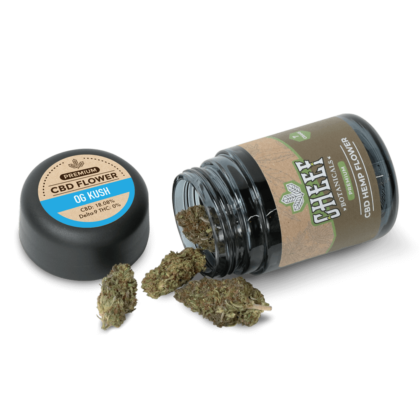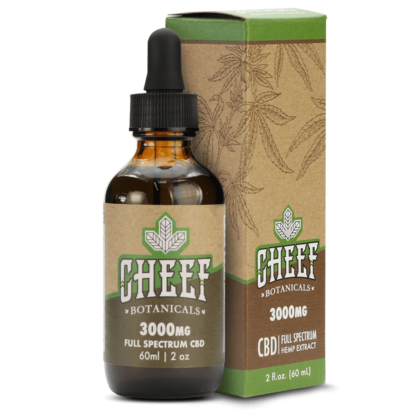Federal Marijuana Legalization 2021: Historic Bill Passed by House
For the first time in U.S. history, the federal government had a vote on the decriminalization of marijuana. Recreational cannabis has been a hot topic in American politics ever since the 1970s. Your state might sell marijuana, but it is still criminalized federally.
While the Farm Bill of 2018 legalized hemp, its cousin marijuana has not been so lucky. This new measure aims to change federal cannabis policies that would affect small businesses and those with non-violent criminal records related to cannabis. Let’s take a look at the status of federal marijuana legalization going into 2021.
Federal Marijuana Legalization Status
At the time of writing, marijuana is federally illegal. While that may soon change, the only cannabis plant that is currently federally legal is hemp. If hemp and marijuana are both cannabis plants, why is one legal and the other illegal?
RELATED: Is CBD Flower Legal? [Yes, Here’s What You Should Know]
The most important distinction between these two plants (in terms of legality) is the level of THC they contain. Hemp has been federally legalized and by law, it can only contain 0.3% THC or less. Marijuana is still federally illegal because its THC levels are above the 0.3% threshold.
You may have heard of THC and CBD, but what are they and why do they impact the legality of cannabis plants? THC, otherwise known as tetrahydrocannabinol, can be found in both marijuana and hemp plants. It’s significant because, in high levels (well above 0.3%), THC can induce intoxicating or “high” effects.
Since large amounts of THC are found in marijuana plants, it has been considered a Schedule I drug since 1970. However, many believe marijuana is too mild of a substance for this classification, with other Schule I substances including heroin and cocaine The MORE bill aims to take marijuana off the Schedule I list.
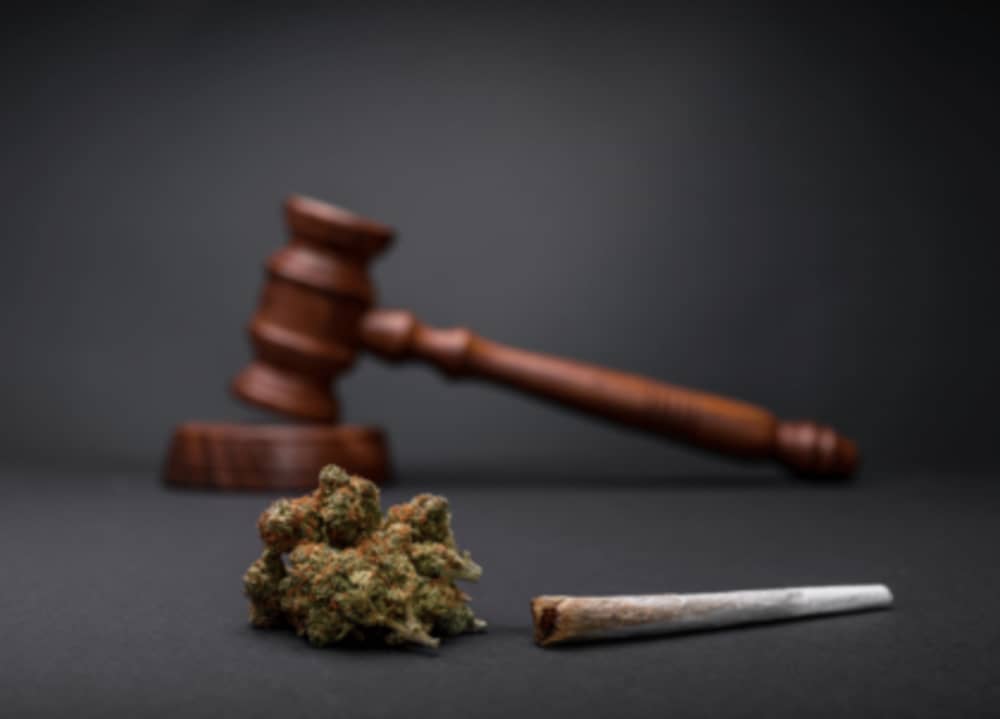
The Tenth Amendment
The legality of cannabis can sometimes be confusing because recreational and medical marijuana is allowed in some states. How can something be permissible by a state but illegal on a federal level? This is where the Tenth Amendment of the Constitution comes in. Simply put, the Tenth Amendment states that any laws that do not fall under the federal government’s jurisdiction are up to the states and the people to govern. Currently, the federal government’s laws on marijuana mean that it is illegal, no matter how your state is operating at the moment.
If the President wished to stop each state that legalized cannabis, he or she could. Though, the Obama and Trump administrations did not interfere with states’ markets.
What Is the New Federal Marijuana Legalization Bill?
The Marijuana Opportunity Reinvestment and Expungement Act (or MORE Act) would decriminalize marijuana at the federal level. It would also remove marijuana from the Federal Controlled Substances Act as a Schedule I drug. The proposal would not necessarily legalize marijuana across the country, as any state can still rule it illegal within their jurisdiction. The MORE proposal would clear many marijuana convictions. This would lead to the release of those who are currently imprisoned for non-violent marijuana charges. The legislation hopes to reverse the damage done by the War on Drugs started in the 1970s.
As Rep. Jerry Nadler said on the House floor, this bill would help reverse the “racially disparate enforcement” of marijuana’s criminalization. The legislation would also create a 5% tax on marijuana products, which would help small businesses secure loans and other funds.
The bill was approved by the House of Representatives on December 4th, 2020. Rep. Earl Blumenauer, D-Ore., co-chair of the Congressional Cannabis Caucus, co-sponsored the bill and has been working to get progressive marijuana laws considered for years. The legislation passed with 228 for, and 164 against. Though this doesn’t mean it has been signed into law and federal marijuana legalization has not taken effect.
A bill must go from the House to the Senate, and finally signed by the President. However, the bill will probably not pass the Senate and reach the President. Senate majority leader Mitch McConnell is unlikely to allow this to happen. We will discuss why in the next section.
Whatever the result may be, the House’s passing of the measure is a major step forward for the marijuana industry. It marks the first time a body of Congress had a vote to decriminalize marijuana. However, many view the passing of this bill as only a symbolic act.
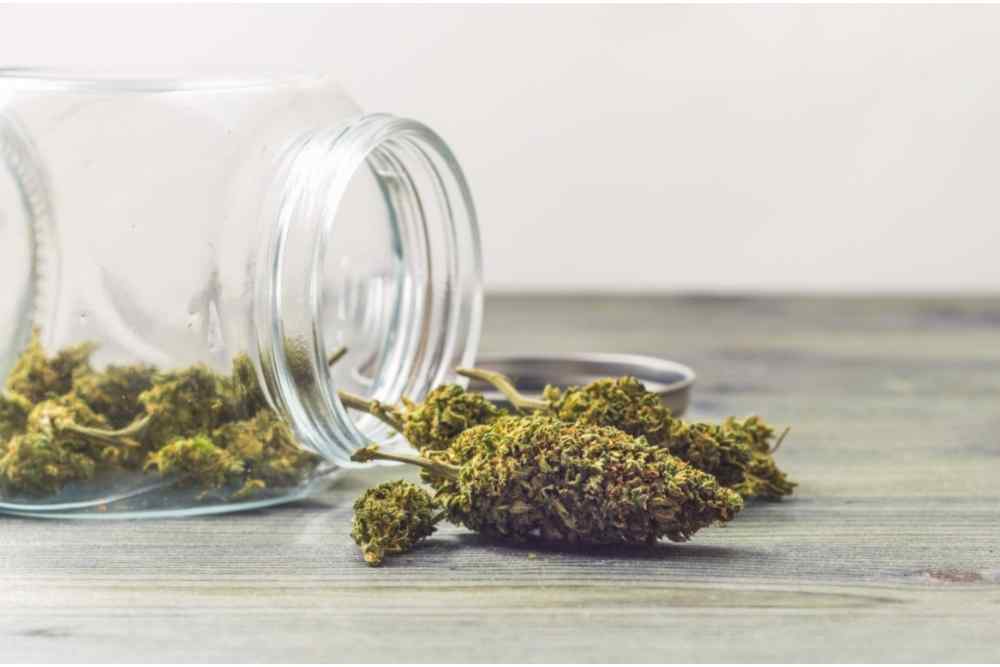
Federal Marijuana Legalization Bill Prediction
Congress, the legislative branch of the U.S., is split into the House of Representatives (also known as the House) and the Senate. The House hands the legislation to the Senate for another approval. The MORE bill is not expected to move beyond the Republican-controlled Senate.
Generally speaking, Democrats are in favor of federally legalizing marijuana while Republicans are not. This is supported by the fact that, of the 228 members (of the House) who voted yes on the bill, 222 were Democrats. Five Republicans cast their ballot to approve the legislation. Prior to the vote, Rep. Earl Blumenauer stated, “For too long, the war on drugs has targeted young people, especially Black people, and rejected the advice of experts.”
Democrats have majority control of the House of Representatives. Republicans currently control the Senate. Since Republicans are generally cautious of cannabis legalization, it is not likely they would vote on the MORE bill at all. The Senate majority leader Mitch McConnell has a reputation of being very critical of marijuana, and his opinions will be the basis of anything that must be confirmed by the Senate.
The Current Congressional Session Comes to an End
Normally, a bill would still be fought for at this stage in the legislative process. However, the current Congressional session is coming to an end. On January 3rd, 2021, the 116th U.S. Congress will transition to its 117th session, and any unresolved legislation will be considered dead.
If the Senate puts off the vote of the MORE bill until January 3rd, the MORE proposal would have to start its journey over. However, this does not necessarily mean the legislation will never be passed.
The other crucial factor for the MORE bill is an election between four Georgia senators on January 5th, 2021. Republicans David Perdue and Kelly Loeffler each currently hold Senate seats. On election day, they ran against Democrats Jon Ossoff and Raphael Warnock for those seats.
None of the four candidates received more than 50% of the vote. Georgia law requires a candidate to receive more than 50% of the vote to win. If Ossoff and Warnock win the two seats, the Senate will be tied across both parties. However, in that circumstance, Vice President-elect Kamala Harris will be able to cast the tie-breaking vote to decriminalize marijuana.
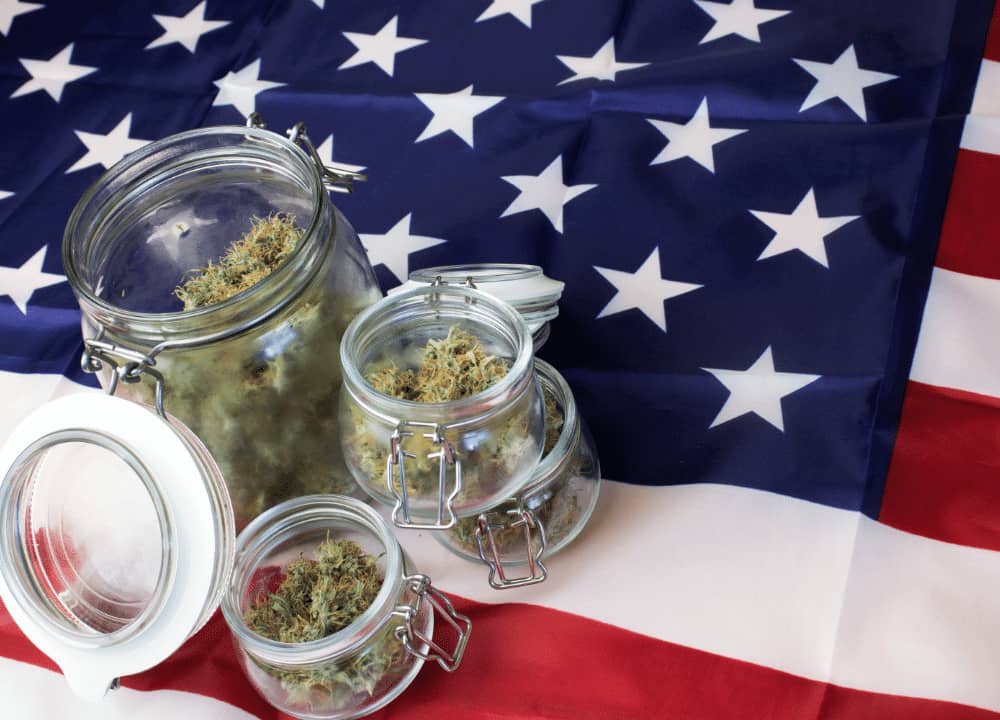
What Will Happen If the MORE Act Passes
First and foremost, the MORE legislation would decriminalize marijuana at the federal level. It would also eliminate criminal penalties for those who manufacture or sell it. The measure directs money made from the sale of cannabis towards communities that have been disrupted by previous strict drug laws.
If the legislation was passed, states would still have to create their own recreational cannabis laws. Even if marijuana was federally legalized, states could still ban the sale of it. Though, the act’s 5% sales tax on marijuana would encourage owners of small businesses to vote for legalization in their state.
In fact, the bill specifically addresses this incentive, proposing the creation of the Community Reinvestment Grant Program. This program would, as the measure puts it, “provide eligible entities with funds to administer services for individuals adversely impacted by the War on Drugs.” Many of the Democrats and Republicans involved with the MORE bill intend it as a message. They realize that the Congressional session is almost over and that the U.S. government has never before voted on the legality of cannabis.
Instead, they wish to show the country that some lawmakers are fighting to legalize cannabis, promote the use of medical marijuana, and free inmates who have been unjustly imprisoned. At the end of the day, it will fall to the state governments to determine their medical and recreational cannabis laws.
What Will Happen With Marijuana Convictions if the MORE Act Passes?
The MORE bill aims to erase some non-violent criminal records based on cannabis charges. A campaign spokesman of President-elect Joe Biden said last year that he supports decriminalizing marijuana. Biden also believes in clearing past criminal records for marijuana possession.
Clearing these records would release many prisoners whose only offense has been the possession of a substance that is now decriminalized in 30 states. As Majority Leader Steny Hoyer said on the House floor:
“Millions of Americans’ lives have been upended as a result of convictions for possessing small amounts of marijuana, and the racial disparities in conviction rates for those offenses are as shocking as they are unjust.”
Many see the start of the current federal attitude towards cannabis as beginning with the War on Drugs. This was a period when the government tasked the police and military with ending drug use. The effects of this time are still seen today.
The War on Drugs began during the presidency of Richard Nixon, who claimed “America’s public enemy number one in the United States is drug abuse.” During this time, Nixon created the Drug Enforcement Agency (DEA) and had the Controlled Substances Act created.
Today, we can see that the War on Drugs did more harm than good. This has been reinforced by a widely publicized quote from one of Nixon’s top advisors. Rep. Jerry Nadler, who sponsored the MORE bill, stated on the House floor that the bill would address the “mistake” of marijuana’s criminalization.
What Type of Cannabis is Legal Now?
Since the Farm Bill of 2018 passed, the cannabis plant hemp is federally legal. Even though marijuana is legal in some states for recreational and medical use, it is illegal on the federal level. We’ve discussed how marijuana’s high THC levels have made it illegal, but what about hemp?
The Farm Bill of 2018 was not like other Farm Bills that had previously been passed. Of course, it extended certain agricultural and nutritional policies for five years, as all Farm Bills have. However, the 2018 Farm Bill also legalized one of the oldest crops in human civilization: hemp.
Hemp is federally approved because THC levels are naturally much lower than in marijuana plants. This is not to say that all hemp is automatically legalized. The THC levels must be kept at 0.3% or lower. If the THC amount rises above this percentage level the crop has to be destroyed.
Hemp & Cannbidiol (CBD)
Hemp has high levels of cannabidiol (CBD). While large amounts of THC can induce intoxicating effects, CBD does not. Instead, CBD promotes soothing, clear-headed effects by interacting with our endocannabinoid system (ECS).
The ECS is present in nearly all mammals, and it regulates bodily functions such as breathing, digestion, and heart rate. We can promote our ECS with CBD. CBD interacts with cannabinoid receptors throughout bodies (known as CB1 and CB2 receptors).
The earliest recorded use of hemp dates back to 2800 BCE in China. During this time, the plant was primarily used for its fibers. These fibers were used to make textiles, rope, and clothing. Hemp seeds are also an excellent source of fat, fiber, protein, and iron.
Hemp is still used in the same industries as in ages past. We also use hemp in bioplastics and biofuel. With hemp’s versatility and fast growth time (four months), it’s no wonder this incredible plant has been legalized.
What Type of Legal Hemp Products are There?
There are far too many hemp products to give an exhaustive list. However, some interesting uses include:
- Biofuel
- Paper
- Laundry detergent
- Thermostat compression molding
- Batteries
- Sports cars (no, seriously)
Hopefully, by now, it’s clear that we can use hemp for just about anything. In recent years, research on the potential wellness benefits of cannabidiol has also made CBD products explode in popularity. CBD is incredibly flexible; consumers are using it to promote muscle recovery, sleep, meditation, and much more!
There are tons of CBD products to choose from. Some of the most popular are:
- CBD Tincture: Also known as oil, tincture can be dropped under the tongue (sublingually), swallowed, and even rubbed onto the skin. Portable and simple, tincture can be added to your drink or mixed into a tasty meal.
- CBD Edibles: Sometimes it can be hard to decide between the soothing benefits of CBD and the sweet taste of gummies. We at Cheef Botanicals got tired of having to make that choice, so we combined the two. For the best of both worlds, try our delicious vegan gummies.
- CBD Vape cartridges: Inhalation is the fastest way to feel the effects of CBD. We don’t always have the freedom of igniting CBD flower, but vape cartridges provide a discreet and portable alternative. You can also choose the taste of your vapor, and some of our flavors are classic CBD strains.
- CBD Isolate powder: For the purists, isolate powder offers 99%+ CBD. Other products contain aromatic terpenes and other compounds derived from hemp. Isolate powder is almost entirely CBD molecules. It is odorless and flavorless, so it can be mixed discreetly into any food or drink.
Related: Best ways to use CBD vape cartridges
There even more CBD products than these, be sure to experiment until you find your favorite. However you use CBD, Cheef Botanicals has got you covered!
Final Thoughts – Federal Marijuana Legalization 2021
Perhaps one of the most fascinating parts of the MORE bill is Section 15, which is its final portion. It requires a report from the Comptroller General of the U.S. no later than two years after the bill is passes. The report must include findings on how federal marijuana legalization has affected the nation.
This includes crime rates, the medical field, small businesses, high school dropout rates, sick days reported to employers, and more. Clearly, there is a strong drive within the U.S. to end the sentiments that the War on Drugs started. Who knows where we’ll go! Click here for CBD News and more.
Read the Marijuana Opportunity Reinvestment and Expungement Act here.

